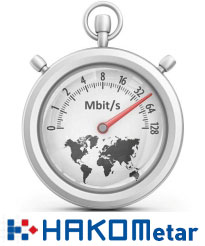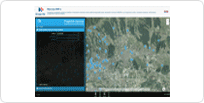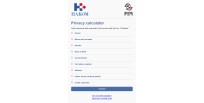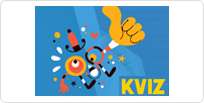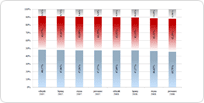Hakom - Croatian Post and Electronic Communications Agency
e-Agency
Users:
Cost Estimator
The Holder of Framework Programme
GIS portal
Privacy calculator
Application ''Quiz''
Market survey
The Usage of Mobile Services of the Croatian Users Abroad has significantly increased
PRESS RELEASEThe Croatian users of roaming mobile services abroad used the Internet 20 times more with duration of calls almost 5 times longer than in the same period last year when the Regulation „Roam like at Home” (RLAH) was not in force.
ZAGREB, June 11, 2018 –In the Republic of Croatia, in the first quarter of 2018, traditionally known as ski vacation month, there was a significant increase in the usage of mobile services in roaming. Thus, the usage of internet in roaming grew over twenty-two times and the duration of the call was almost five times longer compared to the same period last year. The lowest growth was achieved by SMS service with 32% more sent messages. The Ordinance "Roam like at Home“ came into force on June 15 last year and it was not carried out during the first quarter therefore the traffic growth is a direct effect of the Regulation.
The number of broadband internet access connections in the fixed network reached almost 1.1 million and grew slightly below 4% on an annual basis. The number of copper-plated plugs keeps falling, replacing the optical fibres, high-speed cable networks or other access technologies. Fixed-voice services have traditionally been on the decrease.
At the annual level, in the Croatian operators’ mobile networks there has been a drop in telephone revenues and a slight drop in the number of users but the revenues increase from the Internet access services as well as the number of users accessing the internet is expectedly growing . The duration of the call with a slight increase is similar to the year 2017, the number of SMS text and MMS messages dropped by over 12 i.e. 7%. The messages sent to various Internet applications have success replaced the prior ones. The Internet traffic via mobile networks has been in growth for a long time, and it is about 50% higher each year.
The users still prefer packages that combine fixed and mobile network services (the so-called 4D packet services including public voice service in mobile and fixed networks, TV service and Internet access). The number of such users grew by 9% compared to the last three months of the last year. The last communication services between devices and machines, so-called M2M (machine-to-machine) services like communications for alarm system, banking machines, remote monitoring devices are constantly growing. Annual growth of M2M services is 30%.
# # #
For additional information please contact:
Croatian Regulatory Authority for Network Industries (HAKOM)
Roberta Frangeša Mihanovića 9
10110 Zagreb, Croatia
Tel. + 385 (0) 1 700 70 07
Fax + 385 (0)1 700 70 70
Media inquiries can be submitted online using HAKOM’s official website:
Registration required.
ABOUT HAKOM: HAKOM (www.hakom.hr) - Croatian Regulatory Authority for Network Industries – ensures preconditions for a fair market competition, stable growth and environment for innovations in the electronic communications and postal services market. HAKOM protects users’ interests and the possibility of choice among various communications and postal services at affordable prices, defines sustainable competitive conditions for operators and service providers under fair conditions for return on investment, and provides support to economic growth, public services and the quality of life in the Republic of Croatia by using modern technologies. HAKOM’ strategic goals are: to promote regulation of the electronic communications and postal services market, to support growth of investments and innovations in the electronic communications and postal services market, to provide efficient use of limited resources, to accelerate the growth of broadband products and services, to provide affordable offers of communications and postal services, to provide protection and informing of users, to build an efficient and comprehensive information system, to define and implement efficient processes, and to acquire multi-disciplinary competencies in market regulation.


